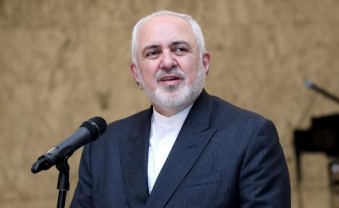Former Iranian Foreign Minister Javad Zarif, who played a key role in negotiating the 2015 nuclear deal, has stepped down from his position as vice president for strategic affairs just days after assuming the role. Zarif announced his resignation on X, citing his disillusionment with the newly proposed 19-member cabinet, which he felt did not meet his expectations for inclusivity.
Zarif, appointed by newly-elected reformist President Masoud Pezeshkian, expressed regret for not being able to fulfil his commitment to ensure representation of women, youth, and ethnic groups in the cabinet.
“I am ashamed that I could not implement, in a decent way, the expert opinion of the committees and achieve the inclusion of women, youth, and ethnic groups, as I had promised,” Zarif stated.
President Pezeshkian presented the cabinet, which included only one woman, to parliament for approval, drawing criticism from reformist factions, particularly over the inclusion of conservatives from the previous administration of President Ebrahim Raisi.
In addition to his disappointment with the cabinet, Zarif revealed that he faced scrutiny due to his children’s US citizenship, which added to the pressure following his appointment. Despite his resignation, Zarif asserted his decision was not out of opposition to President Pezeshkian or his approach but rather stemmed from doubts about his own effectiveness in the role. He indicated that he would return to academia and shift his focus away from Iran’s domestic politics.
Zarif, who served as Iran’s top diplomat from 2013 to 2021 under moderate President Hassan Rouhani, gained international recognition during the negotiations for the Joint Comprehensive Plan of Action (JCPOA). The deal, which aimed to curb Iran’s nuclear program, was significantly weakened in 2018 when then-US President Donald Trump withdrew from the agreement and reinstated harsh sanctions on Iran. Zarif became a symbol of a more outward-looking Iran, aligning with Pezeshkian’s campaign vision for the country.

















